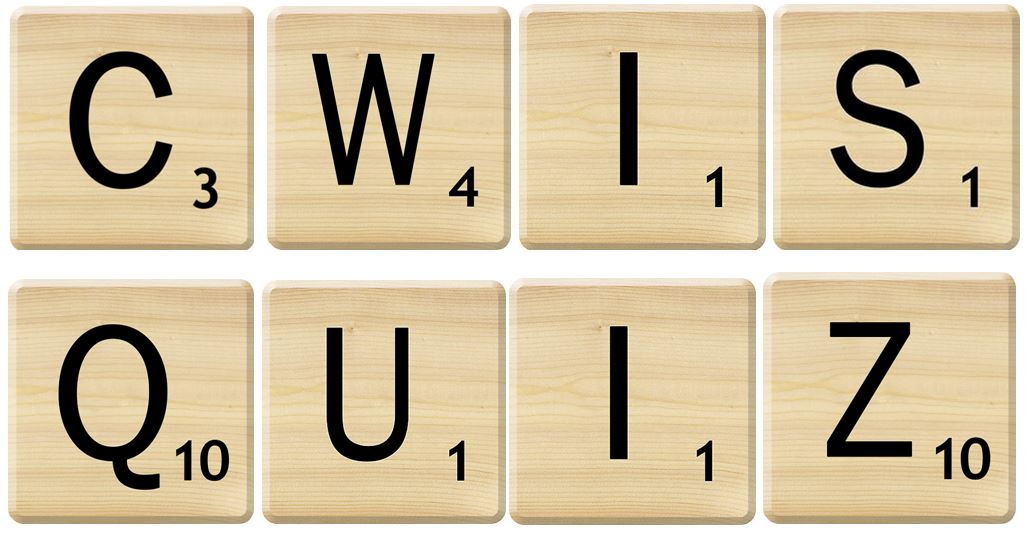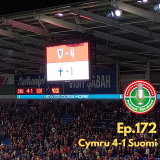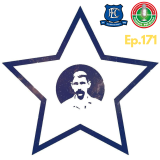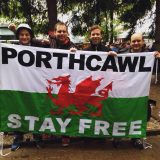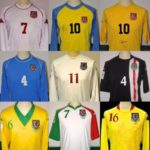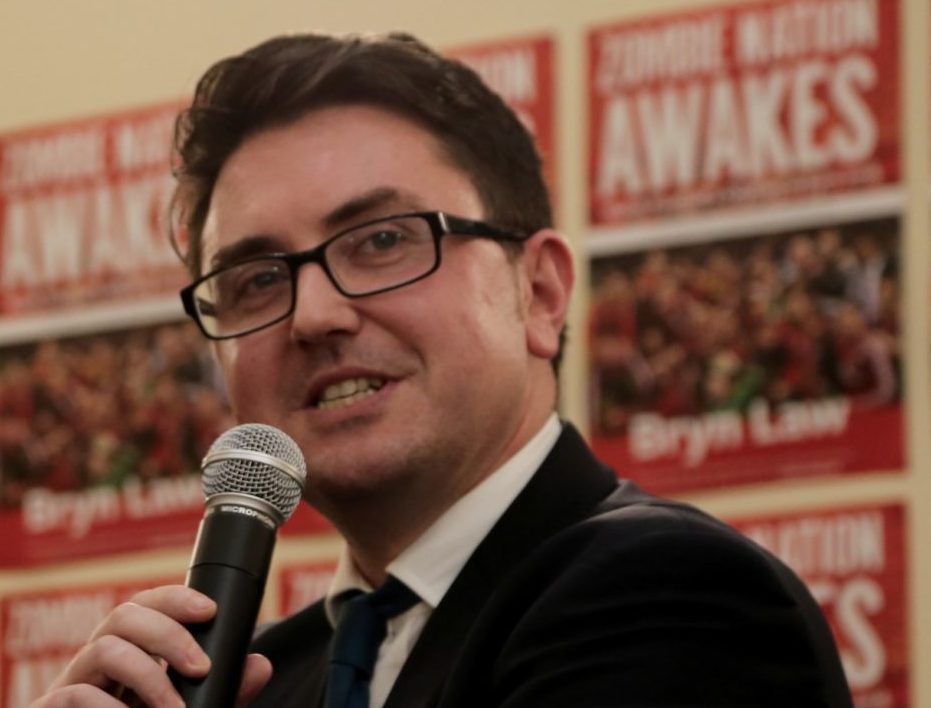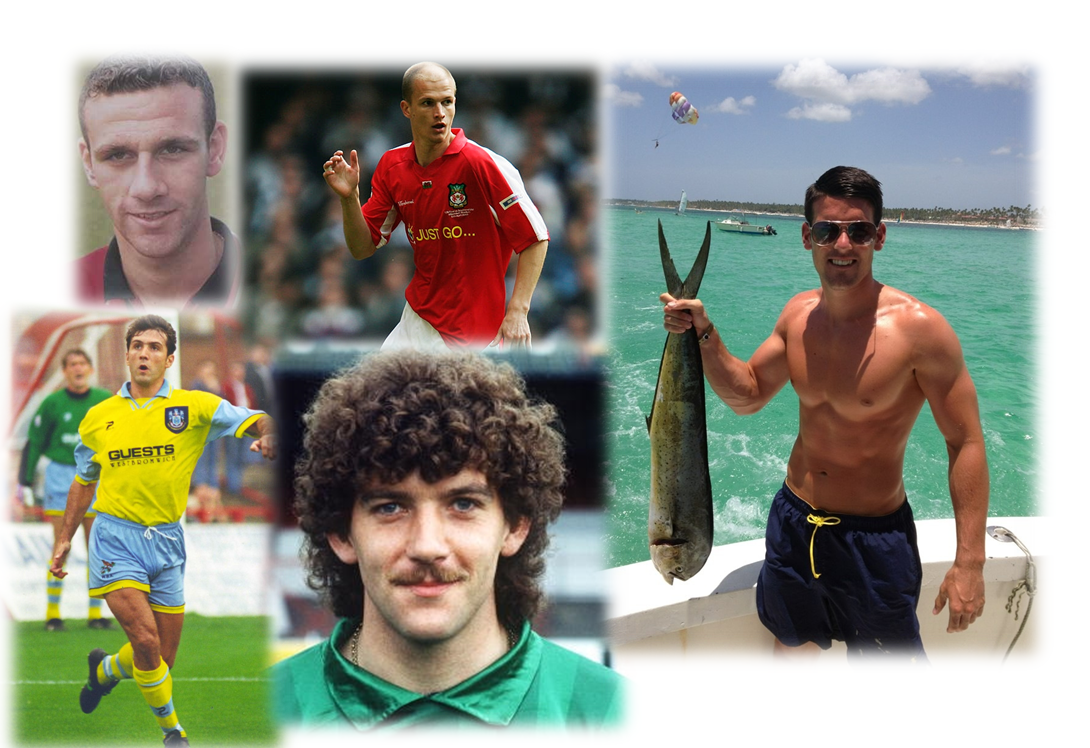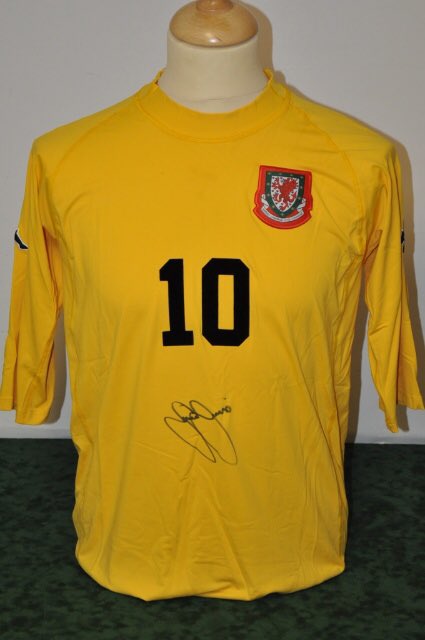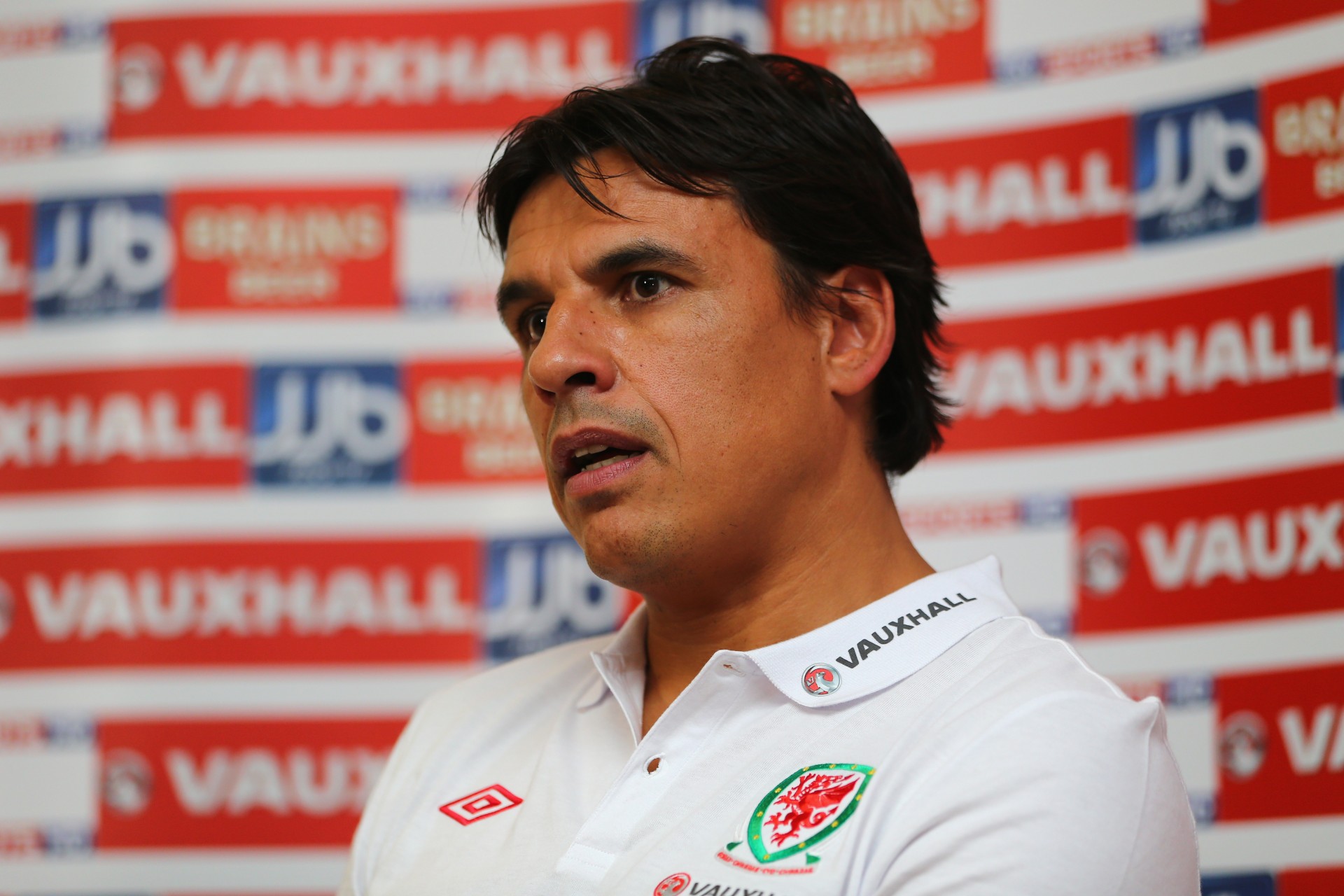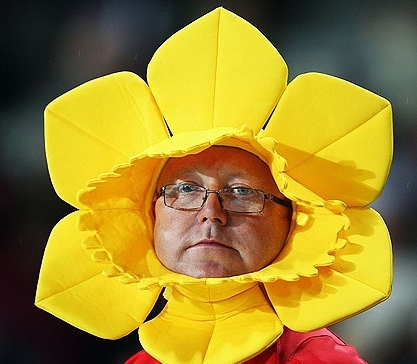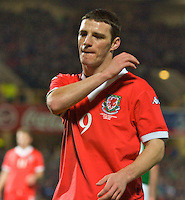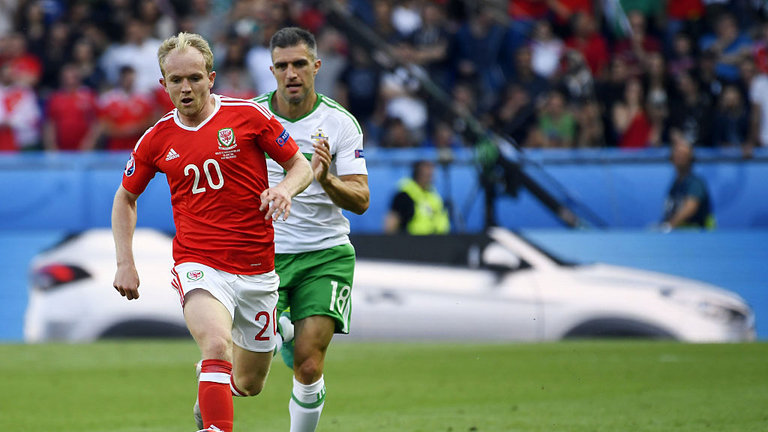Everton Wales XI
Everton FC has strong links to north Wales through a loyal supporter base in the region, plus a fair few club greats hailing from there. Rob Sawyer of the Everton Heritage Society picks his Everton Wales XI.
I have gone with a 4-3-3 formation with Gary Speed as player-manager. Charlie Leyfield, a Chester-born Everton winger who went on to coach the Wales side in the late 1940s, will assist him. Kevin Ratcliffe leads the team out. People will have other ideas about their best Everton Wales XI – but this selection can get the debate started!
Goalkeeper
Neville Southall
The selection of Neville Southall, arguably the club’s greatest ever servant between the posts is a no-brainer. There is a fair argument that in the late 1980s there was no finer number one in the World. So unlucky to miss out of the World Cup finals in 1986 and 1994. 17 years at Goodison, with a great haul of silverware, was complemented by 92 international caps for the (briefly) binman from Llandudno.
Full-backs
Ben Williams
Williams, hailing from the Cynon valley, was acquired by the Toffeemen in 1930 from Swansea Town. He went on to captain the club when it gained promotion back to the top flight in the 1930/31 season as champions and captained his country on three occasions in 1931-32, the season that also saw Williams win the League Championship. Injury saw him replaced by Billy Cook but he remained at Goodison for several more seasons. He then returned to his roots, playing for Newport County. Nicknamed ‘Kyber’ by his Everton clubmates, he was proud to represent his county on 10 occasions.
Colin Green
Hailing from Brymbo, the left-back broke through at Everton in the late 1950s but moved to Birmingham City in search of regular first team football. He won the League Cup at St Andrews and was capped 15 times by Wales.
Centre-backs
Kevin Ratcliffe (C)
Captain during Everton’s most successful era, ‘Rats’ was a quicksilver left-sided central defender. His devastating pace enabled the Blues to play a high defensive line. The Mancot man could also look after himself and had a reputation for defensive nous. He also captained his country, winning 59 caps.
Tommy G. Jones
The ‘Prince of Centre-Halves’ could dictate play from deep with his aerial dominance, cool-headedness and artistry on the ball. The accomplished man from Deeside – often known as ‘T.G.’ – enjoyed legendary status at Goodison, winning the league there in 1939. Later a hero at Pwllheli and Bangor City. His ability to stride forward with the ball would perfectly compliment Ratcliffe’s recovery pace.
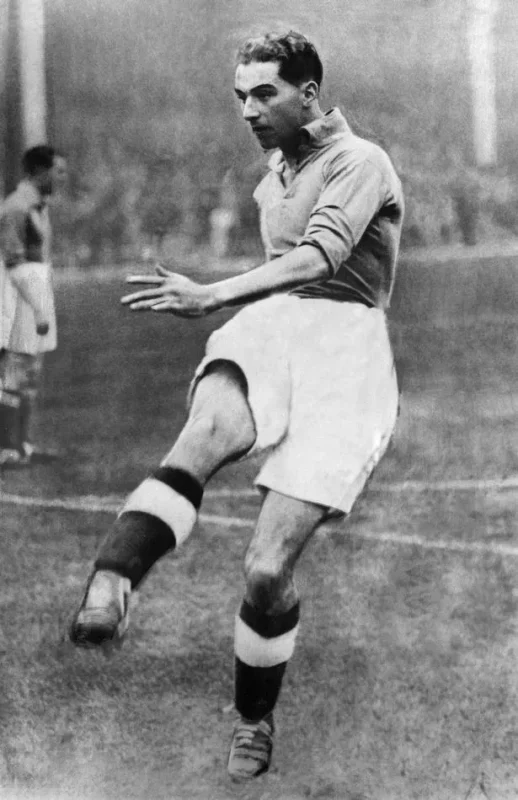
Midfield
Barry Horne
A low-key signing from Southampton, Barry Horne did the simple stuff well and added steel and experience to Everton’s so-called Dogs of War side of the mid-1990s. Scoring of a piledriver against Wimbledon in the great last-day escape from relegation in 1994. The indie-music loving man from Wrexham represented his country 59 times.
Gary Speed
Growing up in the same street as Kevin Ratcliffe – and delivering his papers – the boyhood Blue joined the Toffees from Leeds United in 1996. Superb in the air, with an eye for goal, an excellent left foot and great work ethic, Speed captained the Blues before an untimely departure early in 1998, for which he received a lot of unfair criticism. His absence from the side was keenly felt. Equally effective for his country, as he was for his clubs. He’s player-manager of this Wales XI
Kevin Sheedy
The one that got away. Although feted as a Republic of Ireland star in the halcyon days under Jack Charlton, Sheedy was born in Builth Wells and could have easily donned the red shirt of the land of his mothers. Instead, it was the green of the land of his fathers. Possessing one of the finest left feet in the land, the quietly spoken midfielder was a key influence on the Toffees when they won two Championships and a European Cup Winners’ Cup.
Forwards
Mark Hughes
Everton have never had a talismanic Welsh number nine (they missed out on boyhood Blue Ian Rush). So, I have gone with Mark Hughes, more on the basis of his overall career than his spell as a Toffeeman.
Joe Royle’s attempt to bring the Wrexham man in the mid-90s was thwarted by injury. Sparky was well past his best when he arrived at Goodison in 2001, but he could still hold the ball up with his back to goal and bring others into play. A firebrand on the pitch, he is fondly remembered for an amazing scissors kick for Wales against Spain.
Roy Vernon
The Fynnongroyw-man had amazing pace from a standing start – his temper was almost as quick. He developed into a fine player at Blackburn Rovers before being acquired by the Blues in 1960 and leading them to the league title in 1963. Thin as a rake, but tough – Vernon was blessed with supreme balance, awareness and a hammer in his right boot. Known to get his retribution in first and famous for being able to smoke in the shower, at international level he often had to play second fiddle to Ivor Allchurch. However, he did go to the World Cup Finals in 1958 as the youngest squad member.
David Smallman
An injury-blighted career left supporters with a sense of what might have been. Smallman, like T.G. Jones hailed from Deeside and arrived at Everton via Wrexham. Capped seven times by his country. Smallman joined the podcast in episode 128.
Substitutes
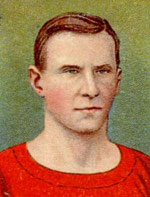
Leigh Roose
The extrovert stopper had a remarkable life, on and off the pitch, sadly curtailed when killed in action in the First World War. A brilliant goalkeeper who was at Everton in the 1904/05 season. His biography by Spencer Vignes is essential reading.
Smart Arridge
Although born in Sunderland, the magnificently-named Smart was raised in Bangor, playing for his local side before representing Bootle and Everton on Merseyside. The left-back subsequently returned to his adopted home city and turned out for Bangor City, as well as working at a nearby harbour. Capped 13 times by Wales.
Charlie Parry
Born just on the English side of the border, Charlie represented Wales xx times and was a member of the first Everton team to win the league in 1890/91. He went on to win the Welsh Cup with Aberystwyth. Equally adept as a full-back or wing-half.
George Farmer
Like Parry, Farmer was born near Oswestry but played for Wales twice. On signing from Oswestry Town, he, along with George Dobson, became Everton’s first professional player. He set up both goals in Everton’s maiden Football League fixture against Accrington and went on to miss only one game that season. He died young and the receipts of the Combination match between Everton and Stockport County went to his widow and children.
Tom Griffiths
The gangly man from Wrexham was an inspiration to the young Tommy G. Jones, He later had big money moves to Bolton, Middlesbrough and Aston Villa. He took the Wales centre half position from the legendary Fred Keenor and and like Keenor captained the team from that position. An accomplished celloist, he went on to run the famous Turf pub next to The Racecourse.
Mark Pembridge
A reliable, if unspectacular left-sided midfielder, who gave good service for the Toffees in the early 2000s.
Keith Webber
Just a handful of Everton appearances for the athletic man from Cardiff, but he was a successful goalscorer at Brighton, Wrexham, Darlington and Chester, where he later ran The Grosvenor Arms in Handbridge.
Nathan Broadhead
One Everton may rue selling, the rapid forward has a bright future ahead of him at Ipswich Town and for Wales. His grandfather, Tony, for Tommy G. Jones at Bangor City, and later alongside Neville Southall at the start of the latter’s career.
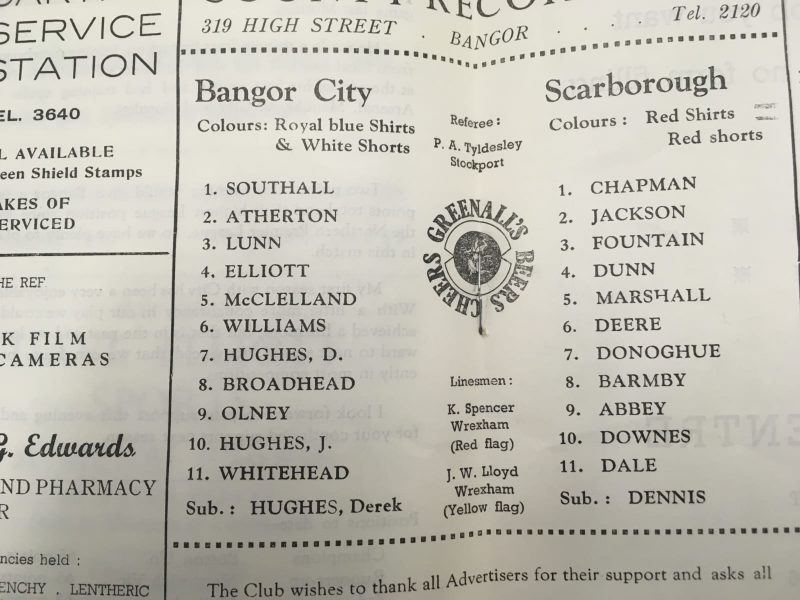
Micky Thomas
A short spell at Everton (his boyhood club) in a nomadic but successful career.
Aubrey Powell
Like Mark Hughes, a forward that was signed by the Blues too late in his career. A record signing in 1948 (£10,000) he only made 35 league appearances for the Toffees.

